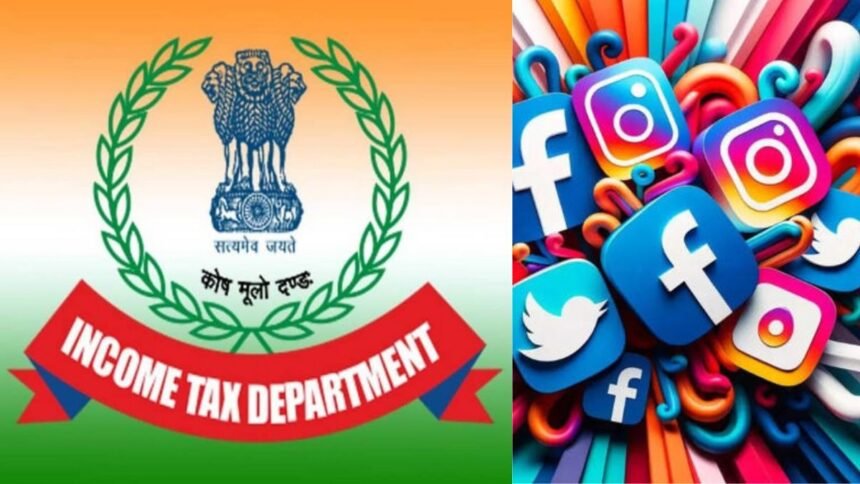The Income Tax Bill 2025 has sparked a heated debate across the country, with critics arguing that it gives tax officials sweeping powers to access private emails, social media accounts, and bank records without a warrant. While the government claims this bill will help combat tax evasion, opposition parties and civil rights groups see it as a dangerous step toward mass surveillance.
What is the Income Tax Bill 2025?
Introduced by Finance Minister Nirmala Sitharaman on February 13, 2025, the Income Tax Bill 2025 proposes several changes to modernize India’s tax system. However, one of its most controversial provisions allows tax authorities to access digital spaces—emails, social media, cloud storage, and financial transactions—without prior notice or a court-issued warrant.
This raises serious questions: Is this a necessary step to curb tax evasion, or is it an invasion of personal privacy? Let’s dive deeper.
The Key Controversy: A Step Towards a Surveillance State?
One of the most alarming aspects of the new Income Tax Bill is Clause 247, which gives tax officers the authority to bypass security measures and access digital data if they suspect undisclosed income or hidden assets. The issue? Suspicion alone is enough—no proof required.
The Congress party has strongly opposed this bill, claiming that it hands the government unchecked power. Congress social media head Supriya Shrinate criticized the bill, stating:
- Emails: Officials can read private conversations.
- Social Media: Authorities can monitor posts, messages, and interactions.
- Bank Accounts: Every rupee earned or spent can be tracked.
- Trading Accounts: Investments and financial moves will be under scrutiny.
The fear is that these powers could be misused—not just for tax enforcement, but for silencing critics, settling political scores, and even intimidating ordinary citizens.
A Government’s Justification: Transparency or Overreach?
The Modi government defends the bill, arguing that tax evasion has evolved, and modern tools are necessary to track hidden wealth. By increasing access to digital financial footprints, authorities aim to prevent large-scale tax fraud.
Supporters claim that the bill:
- Strengthens tax enforcement and prevents black money circulation.
- Streamlines tax administration through digital monitoring.
- Promotes accountability and transparency in financial transactions.
However, critics argue that transparency should go both ways—while citizens are being monitored, who ensures that government agencies don’t abuse their power?
Why Opposition Parties Are Concerned
The opposition sees this bill as part of a larger pattern of government overreach. Congress leaders argue that the bill could:
- Be used as a weapon to harass political opponents and critics.
- Stifle free speech by discouraging people from voicing dissent online.
- Create a climate of fear where citizens constantly feel watched.
The fact that tax authorities can access private data without a court order is a major red flag for privacy advocates.
Comparisons with Global Practices
Globally, governments do have mechanisms to investigate tax evasion, but they typically require court approval. For example:
- United States: The IRS needs legal authorization to access personal digital records.
- United Kingdom: HMRC must obtain a court warrant before investigating digital transactions.
- European Union: Strict data protection laws prevent unwarranted surveillance.
In contrast, the Income Tax Bill 2025 removes judicial oversight, raising concerns that India may be heading toward state-controlled surveillance rather than regulated tax enforcement.
Public Outrage and Privacy Concerns
The bill has ignited public outrage, with citizens, legal experts, and privacy advocates demanding greater safeguards. Key concerns include:
- Potential for misuse by corrupt officials.
- Violation of fundamental rights under Article 21 of the Indian Constitution.
- Chilling effect on free speech as people fear being monitored online.
A 31-member Select Committee, led by BJP National Vice President Baijayant Panda, is currently reviewing the bill, but opposition parties fear that the government’s majority will push it through without significant changes.
What’s Next? Can the Bill Amend?
As debates continue, legal experts and civil rights organizations are pushing for amendments that:
- Require judicial approval before accessing digital records.
- Limit surveillance powers to high-risk tax evasion cases.
- Ensure accountability by creating an independent oversight body.
The final shape of the bill depends on public pressure, legal scrutiny, and parliamentary discussions.
Read More: Karnataka Budget 2025: Siddaramaiah Defends Welfare Schemes as ‘Strategic Investments, Not Freebies’
Conclusion
The Income Tax Bill 2025 is a double-edged sword. While it aims to curb tax evasion, it also risks turning India into a surveillance state. Granting tax authorities unrestricted access to personal digital records raises critical privacy concerns that cannot ignor.
A balanced approach is necessary—one that empowers tax agencies without compromising individual freedoms. The government must ensure transparency, oversight, and strict safeguards against misuse. Otherwise, the price of tax enforcement could be a serious erosion of civil liberties.
What are your thoughts? Is this bill a necessary step for tax reform, or a dangerous power grab? Let’s keep the conversation going.










